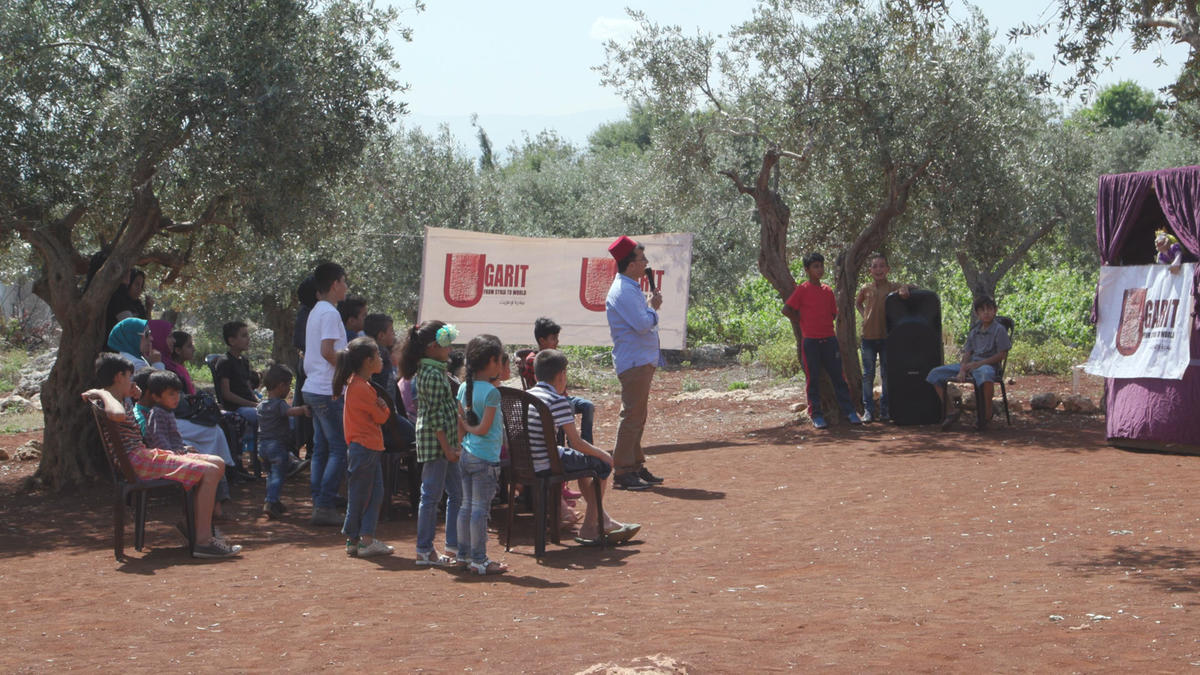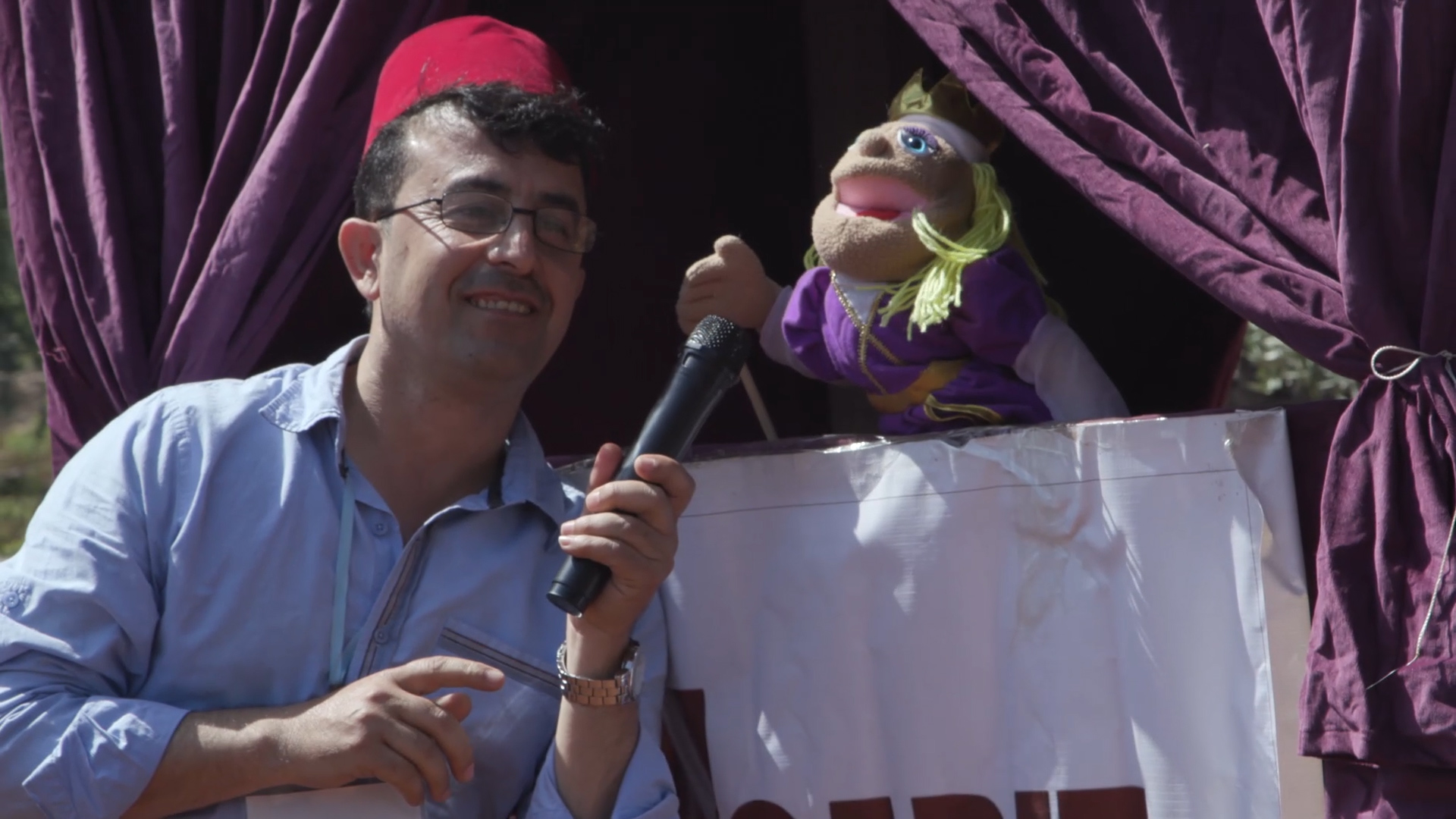Puppet show teaches Syrian refugee kids their heritage
Puppet show teaches Syrian refugee kids their heritage

NAKHLE, Lebanon – Crouching inside a small tent in a hilltop olive grove in northern Lebanon, Jassem works his hand puppets and sings rhymes in a falsetto voice about landmarks in his native Syria. The audience of young refugee children squeal with laughter and shout out questions about a homeland most of them cannot remember.
The 28-year-old former physical education teacher came to Lebanon as a refugee in 2011 having fled insecurity in Raqqa, settling first in the capital Beirut before moving to Nakhle village in the northern district of Koura. He said he and fellow refugees began putting on the puppet shows when they realized how little Syrian children in Lebanon knew about their own country.
“All they know about Syria is war and bloodshed.”
“Many Syrian children were born or raised away from home. All they know about Syria is war and bloodshed.” he explained. “You feel like they don’t have a sense of belonging to Syria, but those children are the future of the country – how will they rebuild if they know nothing about it?”
Lebanon is host to 976,000 registered refugees from Syria’s conflict, now in its eighth year. More than half of them are children. Across the region, more than a million refugee children were born after the outbreak of war, meaning they have known nothing but conflict or exile.
During the show, Jassem introduces the youngsters to Syria’s 14 governorates and their specific traditions and histories, including folk dances and major monuments such as the Umayyad Mosque in Damascus. The children are engrossed, but the strongest response often comes from the parents.
“As we perform the play, we are often affected by the emotional reaction of parents, who burst into tears as they recall their memories of Syria,” Jassem said. “This usually triggers a discussion between parents and their children about the heritage and cultures of their hometowns.”
"Volunteering has given me peace of mind."
The initiative was born out of Jassem’s voluntary work, which began when he moved to Koura and became an outreach volunteer for UNHCR, the UN Refugee Agency. Working with vulnerable refugee families, coupled with his teaching background, led him to identify a need to help young Syrians with their education.
As well as the puppet show, Jassem and other volunteers also run morning classes three times a week for Syrian children enrolled in Lebanese public schools. The lessons focus mainly on Arabic and French language skills, and having started out helping a handful of neighbourhood kids, the classes have now grown to almost 50 pupils.
To help them cope with the increased demand, UNHCR donated a classroom tent and stationery for the children. Jassem now hopes to expand the puppet show and language classes to other parts of the country, and says the experience has transformed his own life in exile.
“Volunteering has given me peace of mind,” he said. “When you put a smile on a child’s face, you feel like you are helping them and giving them hope, and this feeling is indescribable.”









